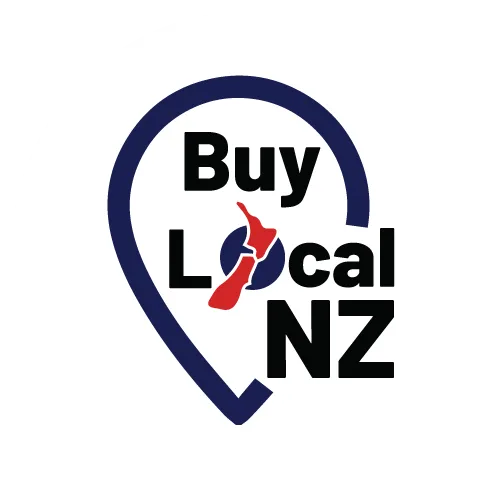
7 Expert Blog Tips For Business Growth
You'll boost your business growth through expert blogging by creating high-value local content that resolves specific community problems. Target location-based keywords, build strategic partnerships through guest posts, and optimise for local SEO to increase visibility. Convert readers into loyal customers with engaging content, leverage social platforms to expand reach, and consistently measure performance metrics. Discover how these proven strategies can transform your blog into a powerful business growth engine.
Main Points
- Create valuable local content that addresses specific community requirements and challenges whilst incorporating location-specific keywords naturally.
- Optimise your blog for local search through targeted keywords, schema markup, and regular updates to your Google Business Profile.
- Transform blog content into multiple formats like social media posts, videos, and infographics to maximise reach and engagement.
- Build community engagement by responding to comments, featuring user-generated content, and encouraging meaningful discussions around shared interests.
- Monitor performance metrics through Google Analytics to identify successful content patterns and adjust strategy based on reader preferences.
Create High-Value Content That Solves Local Issues
While many businesses focus on broad marketing strategies, creating content that addresses specific local needs can set you apart from competitors.
Start by identifying common challenges in your community through surveys, social media monitoring, and direct conversations with customers. Then, create targeted blog posts, videos, or podcasts that offer practical solutions.
Your content should empower local audiences with actionable insights they cannot find elsewhere. For instance, if you are a property agent, create guides about navigating through specific neighbourhood zoning laws or showcase upcoming local development projects.
If you run a restaurant, share recipes using regional ingredients or tips for hosting events that reflect local culture. This highly focused approach builds trust, establishes your expertise, and attracts customers who value personalised, community-centred solutions.
Target Location-Based Keywords for Maximum Impact
You'll gain a competitive edge by focusing on location-based keywords that highlight your local presence and expertise.
Start by examining your competitors' keyword strategies to identify gaps and opportunities in your specific geographical market.
Control Your Regional Market
Standing out in your local market requires more than just having a physical presence - it demands strategic positioning in local search results. To dominate locally, you'll need to leverage every digital tool at your disposal whilst maintaining authentic connections with your community.
Break free from traditional marketing constraints by embracing a hybrid approach that combines online visibility with real-world engagement.
- Create location-specific landing pages that highlight your neighbourhood presence and showcase local customer testimonials.
- Partner with other local businesses for cross-promotional opportunities and community events that amplify your reach.
- Optimise your Google Business Profile with regular updates, photos, and responses to reviews to boost your local search rankings.
Take control of your market position by implementing these strategies consistently, and watch your local authority grow organically.
Research Competitor Keywords First
Building on your local market dominance starts with understanding what keywords your competitors target and how they position themselves in search results.
Use tools like SEMrush or Ahrefs to uncover your competitors' most successful keywords and identify gaps in their strategy that you can exploit.
Don't limit yourself to obvious search terms. Break free from conventional thinking by analysing long-tail keywords that show clear user intent.
Focus on location-specific phrases that your competitors might have overlooked, such as neighbourhood names, local landmarks, or community-specific terms.
Create a strategic keyword map that positions your business to capture traffic your competitors are missing.
Build Strategic Partnerships Through Guest Blogging
Building strategic partnerships through guest blogging starts with finding websites that share your industry focus and target audience.
You'll want to identify partner sites with strong domain authority and engaged readership that align with your business goals.
Choose Relevant Partner Sites
When seeking guest blogging opportunities, it's crucial to partner with sites that align with your business goals and target audience. Look for platforms that share your values and complement your expertise without directly competing with your offerings.
This strategic alignment will help you reach the right readers and build meaningful connections within your industry.
- Research potential partners by analysing their content quality, engagement metrics, and domain authority to guarantee they'll provide valuable exposure for your brand.
- Check their audience demographics and engagement patterns to verify they match your ideal customer profile.
- Study their editorial guidelines and previous guest posts to understand their content standards and confirm you can deliver what they expect.
Break free from random partnerships and focus on collaborations that will amplify your message to people who truly matter to your business.
Create Value-Led Content
Once you've identified the right partner sites, your focus should shift to creating content that delivers genuine value to their audience. Break free from conventional promotional content by addressing their specific pain points and offering actionable solutions.
Your guest posts should challenge industry norms whilst maintaining professionalism. Share unique insights, proprietary data, or innovative strategies that readers won't find elsewhere. Remember to weave your expertise naturally into the narrative without being overly self-promotional.
Emphasise transformational takeaways that empower readers to achieve their goals. Include practical examples, step-by-step guides, or case studies that demonstrate real results.
Optimise Your Blog Posts for Local SEO Success
To dominate local search rankings and attract nearby customers, you'll need to optimise your blog content with location-specific keywords and phrases. Break free from generic content by incorporating your city, neighbourhood, and regional terms naturally throughout your posts. This targeted approach helps you connect with your local audience while boosting your visibility in location-based searches.
- Create dedicated blog posts about local events, community initiatives, and area-specific challenges your business solves.
- Include location-specific schema markup to help search engines understand your geographical relevance.
- Build local backlinks by collaborating with nearby businesses, community organisations, and regional publications.
Remember to maintain authenticity while weaving in local references. Your content should resonate with the unique characteristics and needs of your community while establishing your business as a trusted local authority.
Convert Blog Readers Into Loyal Customers
Attracting local readers through SEO is just the first step - now it's time to convert those visitors into loyal customers.
Make your content deeply relevant to your readers' needs and aspirations. Share authentic stories that showcase how your products or services have transformed lives and solved genuine problems.
Create compelling calls-to-action that connect with your audience's desire for positive change. Offer exclusive content, early access to new products, or special discounts to blog subscribers.
Build trust by responding promptly to comments and engaging in meaningful discussions.
Don't just sell - empower your readers. Share valuable insights that help them achieve their goals.
When you consistently deliver content that enriches their lives, they'll naturally progress from casual readers to brand advocates who champion your business within their communities.
Leverage Social Media to Amplify Blog Reach
While creating valuable blog content is essential, amplifying its reach through social media can exponentially grow your audience. Share your blog posts strategically across platforms where your target readers spend their time.
Don't just drop links - craft unique, platform-specific messages that spark curiosity and encourage engagement.
- Create eye-catching social media graphics featuring key statistics, quotes, or insights from your blog posts to stop scrollers in their tracks.
- Schedule your content to post during peak engagement times, and use platform analytics to refine your timing strategy.
- Engage with your audience's comments and questions to build meaningful connections and encourage content sharing.
Break free from traditional marketing constraints by repurposing your blog content into multiple social media formats - from quick tips to carousel posts to short video clips.
Measure and Refine Your Blogging Strategy
Three key metrics form the foundation of any successful blogging strategy: traffic, engagement, and conversions. To break free from stagnant results, you'll need to consistently track these numbers and adapt your approach.
| Metric | What to Measure |
|---|---|
| Traffic | Unique visitors, page views, time on site |
| Engagement | Comments, shares, bounce rate |
| Conversions | Email signups, sales, click-through rates |
Use Google Analytics to monitor your blog's performance weekly. When you spot underperforming content, don't hesitate to update or replace it. Test different headlines, formats, and calls-to-action to discover what resonates with your audience. Remember, your blog isn't fixed in place – it's a dynamic tool that should evolve with your readers' needs and interests.
FAQs
How Often Should I Update My Business Blog to Maintain Reader Engagement?
You'll want to post fresh content 2-3 times per week to keep readers engaged. If that's too demanding, aim for once weekly but stay consistent with your publishing schedule.
Which Blogging Platforms Are Most Suitable for Small Business Websites?
You'll find WordPress dominates as your best choice, offering freedom and control. Wix and Squarespace provide excellent alternatives with user-friendly interfaces. Each platform lets you express your unique business voice.
Should I Disable Comments on my Business Blog Posts?
You'll enable meaningful conversations by keeping comments active, whilst moderating them regularly to prevent spam. Blog comments create valuable community engagement and provide genuine feedback for your business development.
How Long Should I Wait Before Republishing or Updating Old Blog Content?
Similar to rousing a dormant giant, you should return to your blog posts every 6-12 months. Don't allow worthwhile content to collect digital dust - update when statistics decrease or information becomes outdated.
What Is the Ideal Length for Business Blog Post Headings?
Keep your blog post headings between 50-60 characters to maximise SEO impact. You'll want them long enough to be descriptive but short enough to display fully in search results.
In Summary
Just like a master chef combines ingredients to create the perfect dish, you'll need to blend these seven blogging strategies to cook up business success. By creating valuable local content, targeting strategic keywords, building partnerships, optimising for SEO, nurturing customer relationships, leveraging social media, and measuring results, you're now equipped to transform your blog into a powerful growth engine for your business.

